I’ve seen many people online say things like “moisturisers just seal in moisture, you need actives to have real anti-aging effects”.
I strongly disagree, and to back up my case I’m going to present a recent study that I think really illustrates the difference a basic product (cleanser, moisturiser, sunscreen) can make. The “actives or nothing” approach really underestimates how your skin is a living organism, with the capacity to repair itself if you sort out the fundamentals of your skincare routine. Actives like retinoids and vitamin C get a lot of attention, and they do deserve a lot of credit – but getting your basic products right is crucial to healthy skin!
It’s a bit like the role of diet and exercise (the basics) in maintaining your health, versus using active medications. While the actives are important in fixing unhealthy conditions, there’s a lot of good that can come from preventing these in the first place, by keeping your body working like it should! Your body (including your skin) is also capable of healing itself to some extent, as long as you’re not continually hurting it.
This recent study was published in the Journal of the European Academy of Dermatology and Venereology. It’s on whether a moisturiser without any traditional “active” ingredients can decrease inflammatory markers in the blood… and it turns out they can!
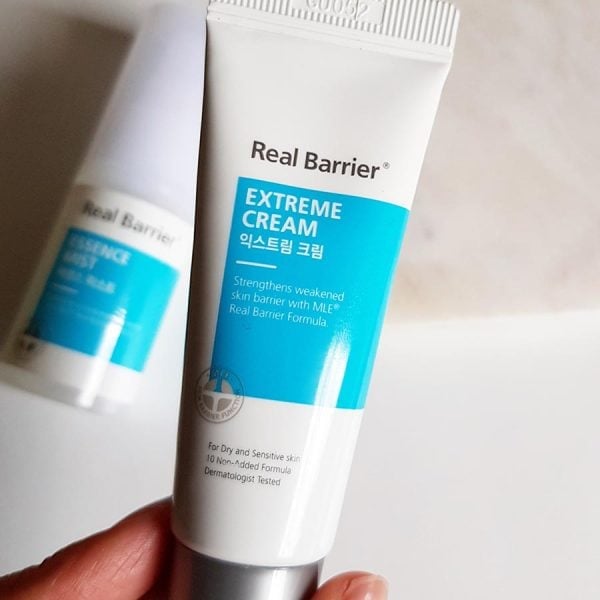
Background: Inflammation and Skincare
A bit of background to the study:
Low-level, continuous systemic (whole-body) inflammation is one of the hallmarks of the aging human body, with the catchy name of “inflammaging”. Inflammation has been linked to the development of age-related conditions like type 2 diabetes, osteoporosis and Alzheimer’s disease.
Skin is a huge organ, so it’s quite possible that its state can change how the rest of your body functions. Some inflammatory skin diseases like atopic dermatitis and psoriasis are associated with changes in the levels of inflammatory markers (cytokines) in the blood.
It’s also been observed that in mice, skin disturbances like increased pH can cause inflammation in aged skin, as well as an increase in inflammatory cytokines in mice.
So the scientists decided to find out if using a moisturiser mimicing the components of a healthy skin barrier could decrease the inflammatory markers. Turns out it could!
Study Details
The study was performed on 63 aged volunteers (58-95 years old, median in the mid-70s) living in an assisted living facility. None of them had a history of inflammatory diseases. They all stopped using skincare products (including soaps!) for a week before the study. Staff applied 3 mL of Atopalm Intensive Moisturizing Cream to half of the aged volunteers all over twice a day for a month, while the other half stayed untreated (the control group, to act as a comparison).
(Note: This study wasn’t sponsored or linked to Atopalm in any way! This is pretty rare for a study that names a specific brand of product.)
Blood samples were collected from all of the aged volunteers and 11 young volunteers (average age 32.7) right before and right after the treatment period. The levels of three cytokines strongly associated with age-related disorders, IL-1β, IL-6 and TNFα were measured, as well as skin hydration, skin pH and transepidermal water loss (TEWL).
Skin hydration increased a lot, and skin pH and TEWL decreased after treatment with the moisturising cream, which isn’t surprising since there are lots of other studies showing the same thing. But what’s new this time is the cytokine levels: IL1β and IL-6 decreased with treatment, to comparable levels with the young volunteers!
(TNFα declined by over 40% as well, but this result didn’t reach statistical significance.)
Limitations of the study
This is a pilot study, so it’s still unknown whether these effects will be replicated (although it’s a good sign that other studies have pointed towards the same effect). Obviously this was only performed using this specific moisturiser (Atopalm Intensive Moisturizing Cream), so other moisturisers will likely have varying effects – it’s possible that some might not even be beneficial. It’s also worth noting that the study was performed in older people, so moisturiser might not have the same effect on younger skin.
Despite these limitations, it’s a good sign that skincare shouldn’t be just about the actives!
More on getting the basics right: The Lab Muffin Guide to Basic Skincare
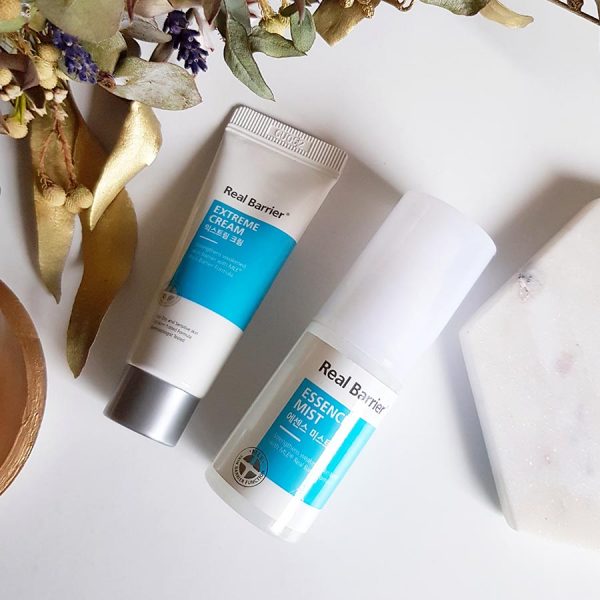
References
Ye L et al., Topical applications of an emollient reduce circulating pro-inflammatory cytokine levels in chronically aged humans: a pilot clinical study, J Eur Acad Dermatol Venereol. 2019, 33, 2197-2201. DOI: 10.1111/jdv.15540
This post contains affiliate links – if you decide to click through and support Lab Muffin financially (at no extra cost to you), thank you! For more information, see Disclosure Policy.



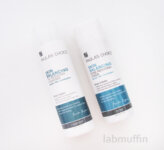
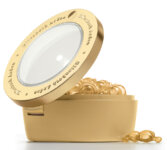
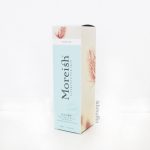

If the control group had nothing applied, could the difference be due to the fact that the experimental group had special attention with twice daily application all over the body which may have led to a feeling of comfort and care? Possibly affecting stress hormones and reducing whole body inflammation? Just wondering.
That is a great question, I was wondering the same thing. Being touched in a gentle way has been shown to reduce stress.
But I still think these are very interesting finds and show that the basics should not be forgotten in favor of fancy sounding new things.
I have a feeling that the introduction of the treatment through gentler means would have a psychosomatic influence on the body. I’d rather have sunscreen applied by someone who cares for me than a stranger on the beach, that’s for sure.
It’s certainly a possible confounding factor!
But I would expect that elderly people in a nursing home would be already receiving a range of levels of touch (e.g. having dressings applied by nurses etc.). So if touch could be largely responsible the large effect observed in the study, there wouldn’t be such a big difference in the levels of inflammatory markers for the elderly and young groups measured in the first place.
It takes a special kind of person to care for the elderly. Thanks for your well thought out response. Usually I get the “thanks for your response”. I wonder if Oxytocin could improve the absorption of nutrition delivered through skincare products.
It just feels better to have a cream applied by someone nice.
I’m also wondering about the fact that they also stopped using soap. Soap would raise the pH and could also contribute to inflammation in skin that is already very dehydrated. There should be a no soap/no Atopalm group to see if it’s just the lotion or if it’s also the soap.
From the wording in the study, I think they meant cleansers rather than true soaps.
I wonder, as someone between 20-25, is it appropriate to keep alternating between an AHA/BHA and Retinol every other day then? Or will this constant use of actives be detrimental? (Thanks for your thoughts, really appreciate it :))
A great post Michelle!
Very interesting read and definately something to think about
Mel x
Im really interested in those products. My skin is so bad at the moment and its really terrible for me. Also my make up doesnt look good with that skin. Hope your products gonna help me.
Kiss
Tina Wimpernverlängerung